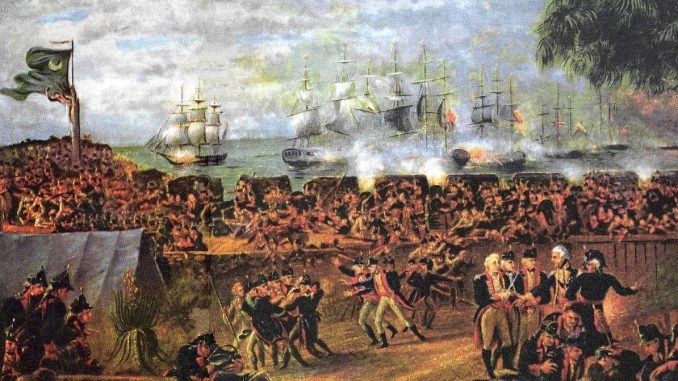
On this day June 23rd, in 1776, off the coast of Charleston, South Carolina, British Commodore Parker (Sir Peter) notifies General Henry Clinton that he will land on the South Carolina mainland the next day on the flood tide, if the wind blows from the south.
After 10 years out of service, Parker received a knighthood in 1772 and rejoined the Royal Navy in 1773. At the outbreak of the American War for Independence, he was charged with supporting Loyalists in the southern colonies. On June 28, Parker raised the British colors above his ship, the HMS Bristol, and at around 10 a.m. his squadron opened fire on the Patriot fortification at Sullivan’s Island off the coast of Charleston. To the surprise of the British, the fort’s palmetto log wall absorbed the British shot like a sponge and prevented the expected splinter injuries to the garrison lying within its walls.
The British suffered yet greater upset when they discovered the level of accuracy and efficacy from the fire directed by Patriot Colonel William Moultrie at the British fleet. Their two largest warships suffered extensive damage and severe crew losses. Adding insult to injury, Commodore Parker suffered not only painful physical injuries but also the embarrassing loss of his breeches, when a splinter, like those that failed to wound the Patriots, managed to strike his leg. In addition, the HMS Sphinx lost its bowsprit; the HMS Actaeon ran aground; and smaller British frigates were damaged. Moultrie’s attack cost Parker 261 injured and dead, including Lord William Campbell, the last royal governor of South Carolina, who received a mortal wound aboard the HMS Bristol. The Patriots suffered only minor casualties.


Be the first to comment